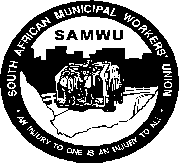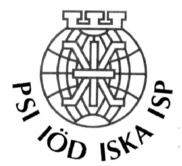
Multinationals free to give bribes – end this scandal!
Privatisation = mother of corruption
Privatisation gives lucrative business to multinationals, and provides great economic incentives to corruption.

 |
Multinationals free to give bribes – end this scandal!Privatisation = mother of corruption
Privatisation gives lucrative business to multinationals, and provides great economic incentives to corruption. |
 |
Most of the multinationals in the dam scandal are based in Europe – a continent where corruption has become entrenched.
It is well known that concessions are a major source of corrupt practices by groups intent on winning favourable terms. A report by the French audit commission, the Cour des Comptes, in January 1997, said that the system of privatised concessions had led to widespread corruption – both Suez-Lyonnaise and Vivendi have been convicted of this.
Even the World Bank acknowledges “…the privatization process itself can create corrupt incentives.” All around the world there are reports of corruption where multinationals are seeking contracts. In Indonesia, the public authorities in electricity and water insist that the contracts given to multinationals under the old dictatorship were corrupt, and based on extortionate profits. Yet the multinationals, supported by their OECD governments and the World Bank, insist on the sanctity of these contracts.
One single Lesotho official, Masupha Sole, former chief executive of the huge Lesotho Highlands Water Project, has been charged with taking R12m in bribes from a dozen international companies over 10 years. Sole, the charge sheet states "did unlawfully, intentionally and corruptly accept bribe moneys, over the period February 1988 to December 1998, from Lesotho Highlands Water Project contractors". The charge sheets list the precise amounts of all the bribes supposed to have been received by this official have been published, naming the contractors from which the money came.
Instead, many of these multinationals are gaining new, profitable business from privatisation.
Bouygues subsidiary SAUR, for example, won a water concession on the Dolphin Coast.
If this happened in Singapore, these multinationals would be prosecuted – and on conviction they, and all their subsidiaries, would be banned from bidding for any public sector contracts for 5 years.
| Multinational | OECD Home country | Company | % owned | Bribe listed in charges | Consortium | Comments |
|---|---|---|---|---|---|---|
|
ABB |
Sweden, Switzerland |
ABB |
FF250,000 (US$40,410) |
|||
|
Acres International |
Canada |
C$279,539 (US$185,002) |
||||
|
Alcatel |
France |
Sogreah |
FF84,000 (US$13,578) |
Owned by Alcatel at time of bribe, until 11.01.99 |
||
|
AMEC |
UK |
Spie Batignolles |
41.6 |
FF738,630 (US$119,393) |
See also consortium LHPC |
|
|
AMEC |
UK |
Spie Batignolles |
DM105,639 (US$57,269) |
Lesotho Highlands Project Contractors |
41.6% owned by AMEC |
|
|
AMIC (Anglo-American Industrial Corporation) |
LTA |
DM105,639 (US$57,269) |
Lesotho Highlands Project Contractors |
LTA is Controlled by AMIC (Anglo-American Industrial Corporation |
||
|
BICC |
UK |
Balfour Beatty |
DM105,639 (US$57,269) |
Lesotho Highlands Project Contractors |
Balfour Beatty is 100% owned by BICC |
|
|
Bouygues |
France |
$733,404 |
Highlands Water Venture |
|||
|
ED Züblin |
Germany |
DM105,639 (US$57,269) |
Lesotho Highlands Project Contractors |
|||
|
ED Züblin |
Germany |
DM819,862 (US$444,466) |
See also consortium LHPC |
|||
|
Group Five |
South Africa |
$733,404 |
Highlands Water Venture |
South African owned |
||
|
Impregilo |
Italy |
US$250,000 |
The controlling shareholder is Fiat (owns 5% plus 16% through Gemina) |
|||
|
Impregilo |
Italy |
$733,404 |
Highlands Water Venture |
|||
|
Kier Intl |
UK |
$733,404 |
Highlands Water Venture |
Owned by employees since 1992 (management buy out) |
||
|
RWE |
Germany |
Lahmeyer Consulting Engineers |
100 |
DM16,000 (US$8,674) |
||
|
RWE |
Germany |
Hochtief |
$733,404 |
Highlands Water Venture |
Hochtief is wholly-owned by RWE and owns 40% of Concor |
|
|
RWE |
Germany |
Concor |
$733,404 |
Highlands Water Venture |
Hochtief is wholly-owned by RWE and owns 40% of Concor |
|
|
Stirling Intl |
UK |
$733,404 |
Highlands Water Venture |
|||
|
Suez-Lyonnaise des Eaux |
France |
Dumez International |
100 |
FF509,905 (US$82,422). |
James Wolfensohn, the World Bank’s director, makes fine speeches about the Bank’s opposition to corruption. But under his leadership the practice of the bank is quite different.
One example is Aguas Argentinas, where the Bank, through its International Finance Corporation (IFC), is an equity partner alongside Lyonnaise des Eaux (now Suez-Lyonnaise) and Générale des Eaux (now Vivendi), both of which have had executives convicted of bribing French public officials to win contracts (in Grenoble, Réunion, and Angoulême).
Hubco, Pakistan’s largest power company, is accused by the government of obtaining its contract corruptly. The World Bank has insisted that Hubco’s contract to sell electricity should not be affected by this, whatever the result of the investigation, and asked the IMF to hold back a loan to Pakistan until the bank was satisfied that Hubco’s contract would not be cancelled because of the corruption proceedings. (The Nation(Pakistan), 31 December 1998). The World Bank’s IFC is a shareholder in Hubco, too.
In 1996 Wolfensohn announced that he had hired an international inspection company, Société Générale de Surveillance (SGS) of Switzerland, to audit bank projects for evidence of corruption in three countries - Poland, Kenya and Pakistan’. (Euromoney, 30 September 1997).
But within months the Financial Times reported that “SGS has admitted that it paid a substantial commission to a Geneva lawyer… for ‘assistance’ in negotiating a pre-shipment inspection services contract with Pakistan ...”(Financial Times, 17 December 1997). (This FT report appeared on the same day as an OECD meeting ratified its new convention calling on countries to make it a criminal offence to pay bribes to foreign officials in order to secure contracts.) In April 1999, the former prime minister of Pakistan, Benazir Bhutto, was found guilty of accepting bribes worth US$9m from SGS, was sentenced to five years in prison, and banned from holding a seat in parliament for seven years (Australian Business Intelligence, 26 April 1999).
But SGS have not been tried for any offence in Pakistan or Switzerland, and have not been banned by the World Bank.
In Uganda, the Bank’s IFC is financing 80% of a $500m hydropower scheme involving multinational AES (Euromoney, 10 March 1999), and has also agreed to guarantee the scheme against political and other risks – on condition that the Ugandan government agrees to privatise the Ugandan Electricity Board (New Vision, 2 March 1999). But the Bank has ignored all allegations of corruption over the power purchase agreement on which the scheme depends – in April 1999 the minister for energy resigned because he was accused “of bribe-taking in his brokering of the power purchase agreement between the American/British AES and government” (Monitor, 18 April 1999).
PSI General Secretary, Hans Engelberts said:
"PSI welcomes the world's growing attention to corruption. However, corruption can only take place if there is both a supplier and a receiver of bribes. All too often it is only the corrupt governments and government officials that are scrutinised and exposed, whereas the supplier of the bribes is let off the hook lightly.
"If we are serious about doing away with corruption, it is time to expose both parties i.e. the suppliers as well as the receivers. It is time to make use of the instruments already in place to keep multinational corporations from supplying the bribes, keeping their contracts and continuing their dealings as if nothing wrong had happened".
PSI and SAMWU call on the South African government:
PSI and SAMWU call on Transparency International conference to:
Public Services International (PSI) is the International Trade Union Federation representing public sector trade unions in 144 countries around the world. The affiliated unions, 528 in number, cover some 20 million public sector members. PSI is an autonomous body, which works in association with Federations covering other sectors of the workforce and with the International Confederation of Free Trade Unions (ICFTU). PSI is an officially recognised non-government organisation for the public sector within the International Labour Organisation and has consultative status with ECOSOC and observer status with other UN bodies such as the UNCTAD and UNESCO.
(Much of the information in this leaflet is taken from an article “Privatisation, multinationals, and corruption”, appearing in Development in Practice Volume 9, Number 5 November 1999. For further details please contact PSIRU: psiru@psiru.org)